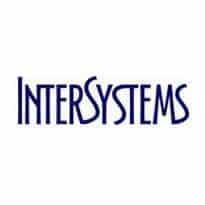Plymouth first with Spine mini services
- 14 August 2012

Plymouth Hospitals NHS Trust has on-demand access to the Personal Demographics Service after going live with the InterSystems HealthShare Spine Mini Services Provider.
Plymouth Hospitals is the first to deploy the service, which has been accredited as part of NHS Connecting for Health’s Interoperability Toolkit initiative. It provides users with on-demand access to the PDS from the Spine.
The trust previously relied on the Demographics Batch Service to validate patient information against the PDS. This involved the submission of batched patient information for tracing against the PDS.
An InterSystems statement says delays in this process meant that important patient information held in operational systems could be incomplete or inaccurate at the point-of-care.
“The trust decided that it needed a solution which would provide accurate, up-to-date information in real time to update patient records and alert staff to potential problems,” it adds.
“This would improve the overall quality of its patient data and reduce the risk of inaccurate problems or incomplete information being presented to clinicians.”
The new service works directly from the trust’s InterSystems integration platform. When patient administration events occur in different systems, a Spine Mini Services request to verify NHS Numbers is triggered.
The relevant information is collected in real time, and can be used to enrich event messages, update trust systems, or alert data quality teams to any issues.
One of the benefits is a deceased patient alert, which can prevent letters being sent to the homes of people who have died, causing distress to families.
Head of software development and integration at Plymouth ICT shared service, Sue Bracey, gave an example of a case in A&E where a patient attendance was recorded against the wrong patient.
“The Spine Mini Services check revealed that the erroneous patient was deceased. This alerted the data quality team, who investigated immediately and found that the user had selected the wrong patient in recording the A&E attendance. This could have had quite serious consequences,” she said.
The new service is also expected to help Plymouth avoid potential penalties for holding inaccurate data and support the trust in complying with the Department of Health’s 2015 deadline concerning the use of the NHS Numbers as the primary patient identifier.




